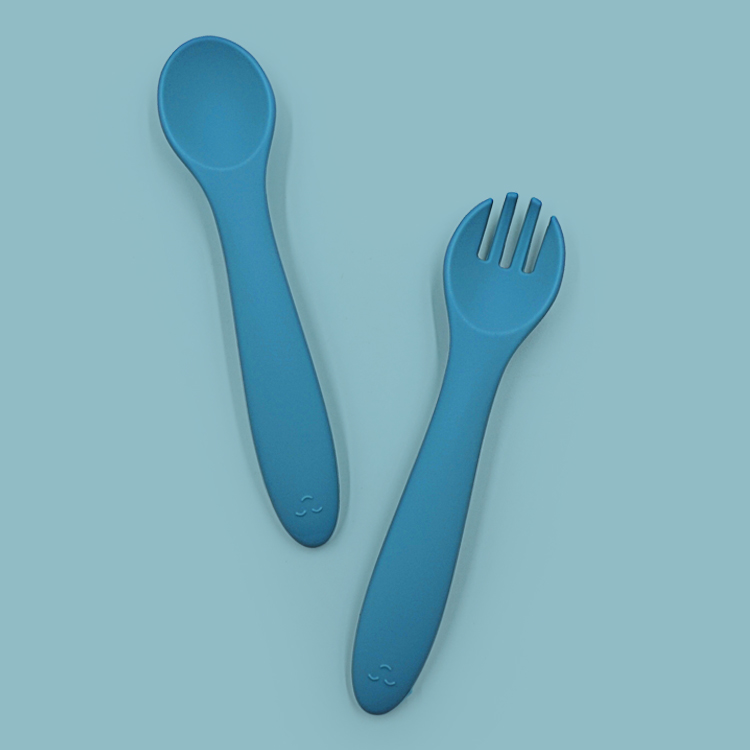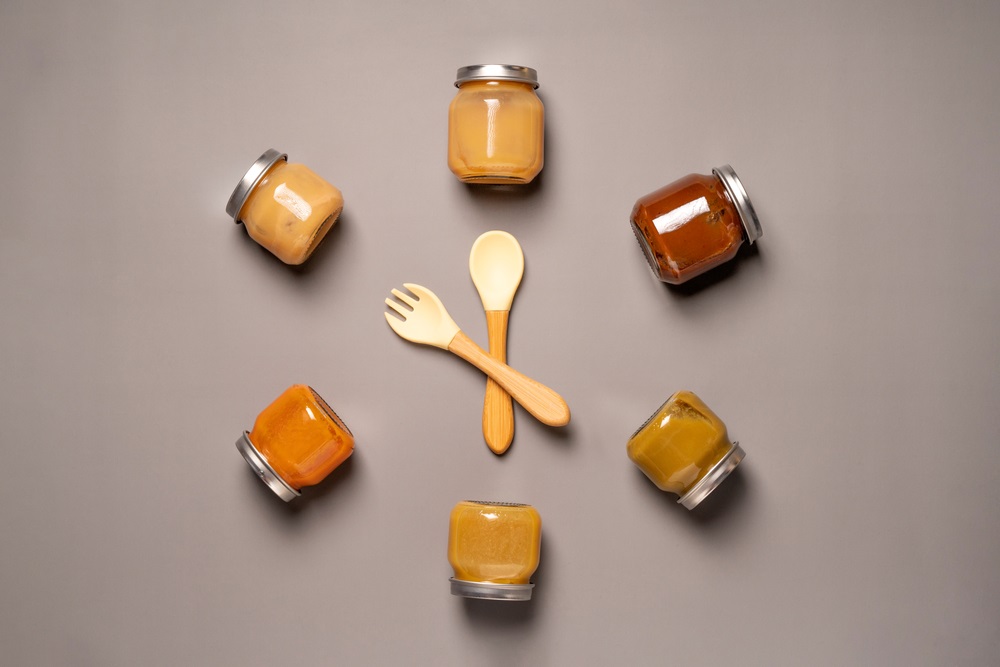After your little one has graduated from milk to solid foods, they may be ready to start learning how to use a baby-friendly fork or spoon. This way, they can start to take the job of eating into their own hands!
Although it may be messy at first, but your baby’s developmental skills will improve as they learn how to eat independently. Encourage your baby to keep practicing and, with some patience (and a lot of clean-up on your end), they’ll be a pro at mealtime in no time!
In this article, we will talk about the time when can babies start using spoons and forks, how to choose the right spoon and fork for your baby, and best foods for first feeding with spoons.
Table of content
When can babies start using spoons and forks
How to choose the right spoon and fork for your baby
When can babies start using spoons and forks
There are many stages for baby to using spoons and forks. It starts from 6 to 8 month when the baby can sit unsupported to 12 to 18 month when the baby’s pincer grasp is fully developed.

About 6 months: Give your baby a spoon to explore with
Give your baby a spoon to explore with from around 6 months old. This is a great way for them to start learning how to use utensils.
You can give your baby a spoon to play with during meal times, or any time that they are interested in exploring. Allow them to hold the spoon and explore how it feels. You can also help them learn how to use the spoon by demonstrating how to scoop food up and bring it to their mouth.
About 10 months: Start using a regular spoon
Around 10 months old, you can start to introduce your baby to using a regular spoon. They may not be able to use it perfectly at first, but with practice they will get the hang of it. You can help them by holding the spoon for them and helping them guide it to their mouth. You can also let them practice scooping food up on their own and then help them bring the food to their mouth.
About 12 months: Let your babies use spoons and forks independently
At around 12 months old, your baby will likely be able to use spoons and forks independently. They may not be able to use them perfectly, but they will be able to get the hang of it with practice.
You can help them by offering some guidance and assistance when needed. You can also let them practice on their own so that they can learn how to do it themselves.
About 18 months: Improve the skill consistantly
At around 18 months old, your baby will likely be able to use spoons and forks quite well. They may not be perfect, but they will have the hang of it. Though consistant practice, they will be able to improve their skills of using utensils quickly and effectively.
How to choose the right spoon and fork for your baby
If you’re looking for the perfect baby or toddler spoon or fork, there are a lot of options to choose from. With so many different shapes, sizes, and materials available, it can be tough to know which one is right for your little one.
Here are a few things to keep in mind when shopping for the perfect baby or toddler spoon or fork:
- Look for a model that is small and lightweight, easy for your baby or toddler to grip.
- Consider a BPA-free silicone utensil– the soft material won’t bother your child’s mouth if they decide to chew on the spoon instead of eat from it.
- When choosing a toddler spoon and fork, look for an option that is light enough for your little one to easily lift and small enough to fit comfortably in their hand.
- Make sure the fork tines are blunt to protect your child’s face in case they accidentally miss a mouthful.

Best foods for first feeding with spoons
Wondering the best first foods to feed your babies, look no further than items that can be easily scooped or stabbed. After all, learning to use utensils can be challenging enough – why make it more frustrating by starting with food that’s difficult to get onto the spoon or fork in the first place?
To make things easier (and avoid frustration), go for menu items that are on the thicker side. Good options that are easy for new eaters to scoop up (and won’t slide off the spoon) include:
- Applesauce
- Butternut squash
- Cottage cheese
- Green beans
- Gerber puffs
- Peanut butter
- Pumpkin puree
- Ricotta cheese
- Sweet potato puree
- Soft cooked carrots
- Tofu
- Yogurt
Conclusion
Well done on your little one’s progress with silicone spoons! It won’t be long before they are a pro – keep up the good work and encourage them to keep practicing. Soon enough, those days of spoon-feeding and finger foods will be a distant memory.
